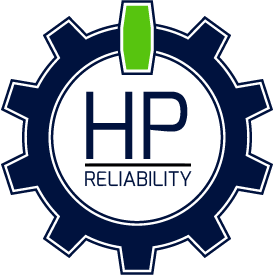The Role of Procedures In Reliability w/ Fred Schenkelberg
This episode of the weekly podcast is focused on the importance of procedures used in the reliability and maintenance process. A procedure is a way of setting up the workplace and equipment in it, then running all the work processes. These ways vary in different organizations as everyone has some standard procedures of their own. A procedure is introduced after a lot of discussion and meetings in the organizations as it plays a great role in increasing the productivity. It s a step by step action plan which helps to detect and prevent the problems quickly. This procedure can be simple work instructions arranged in an orderly manner or these can be complicated depending upon the nature of an industry. But, it always helps keep track of any changes in the routine work being done at a particular place.
Procedure based maintenance helps new operators and technicians in training on the field. They can be provided with a list that contains all the activities that are to be performed and then feedback can be obtained from them whether they were able to do all that or not. It s just an easy way of getting the job done. Job plans also help in this purpose but those are creative ways of dealing with work issues and reducing any confusions as they are consistently improved over the period. A good procedure has following key things in it.
- It is clearly defined and standardized for everyone so that there is no room for any ambiguity as it causes confusion among different operators and other people on the job. A Checklist is the clearest and simplest form of a procedural reliability and equipment usage process as the measures are always reliable through it. The errors are minimum in this case as there is a little human interaction required to perform such obviously written procedures.
- A team with defined skill set and experience should be formed. Their attributes and responsibilities in the procedure should be mentioned in the document. Their contribution should be recorded continuously so that there are no chances of errors.
- Even the experience doesn t guarantee perfect procedural reliability. That s why a procedure should be recoverable if mistakes are made. Documentation should be through and even if the instructions are sometimes performed incorrectly, there should be enough room to fix things as if nothing happened in the first place.
- This procedure should have some control mechanism and an estimate of failure rate so that the execution can be made smooth. A procedure cannot always work correctly. Errors will occur and to resolve them, the collection of data is necessary.
- In the end, regular feedback should be recorded so that investigation can be made if necessary. Recommendations should be considered by the experienced team members as it is the only way to bring the procedure to almost perfection.
There is not always need for new procedures; OEM procedures can also be modified in the context of the organizations to contribute in KMS.
References:
- Accendo Reliability
- Fred Schenkelberg
- Reliability.FM Network
- FMS Reliability
- A Smart Way of Preventative Maintenance eBook
- Maintenance Planning & Scheduling: Planning for Profitability
The post 14 The Role of Procedures in Reliability w/ Fred Schenkelberg appeared first on Accendo Reliability.

